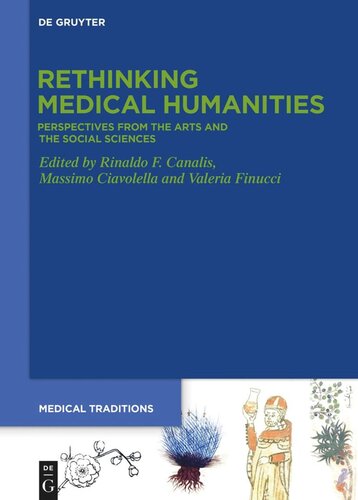

Most ebook files are in PDF format, so you can easily read them using various software such as Foxit Reader or directly on the Google Chrome browser.
Some ebook files are released by publishers in other formats such as .awz, .mobi, .epub, .fb2, etc. You may need to install specific software to read these formats on mobile/PC, such as Calibre.
Please read the tutorial at this link: https://ebookbell.com/faq
We offer FREE conversion to the popular formats you request; however, this may take some time. Therefore, right after payment, please email us, and we will try to provide the service as quickly as possible.
For some exceptional file formats or broken links (if any), please refrain from opening any disputes. Instead, email us first, and we will try to assist within a maximum of 6 hours.
EbookBell Team

4.8
94 reviewsMedical Humanities may be broadly conceptualized as a discipline wherein medicine and its specialties intersect with those of the humanities and social sciences. As such it is a hybrid area of study where the impact of disease and healing science on culture is assessed and expressed in the particular language of the disciplines concerned with the human experience. However, as much as at first sight this definition appears to be clear, it does not reflect how the interaction of medicine with the humanities has evolved to become a separate field of study. In this publication we have explored, through the analysis of a group of selected multidisciplinary essays, the dynamics of this process. The essays predominantly address the interaction of literature, philosophy, art, art history, ethics, and education with medicine and its specialties from the classical period to the present. Particular attention has been given to the Medieval, Early Modern, and Enlightenment periods. To avoid a rigid compartmentalization of the book based on individual fields of study we opted for a fluid division into multidisciplinary sections, reflective of the complex interactions of the included works with medicine.